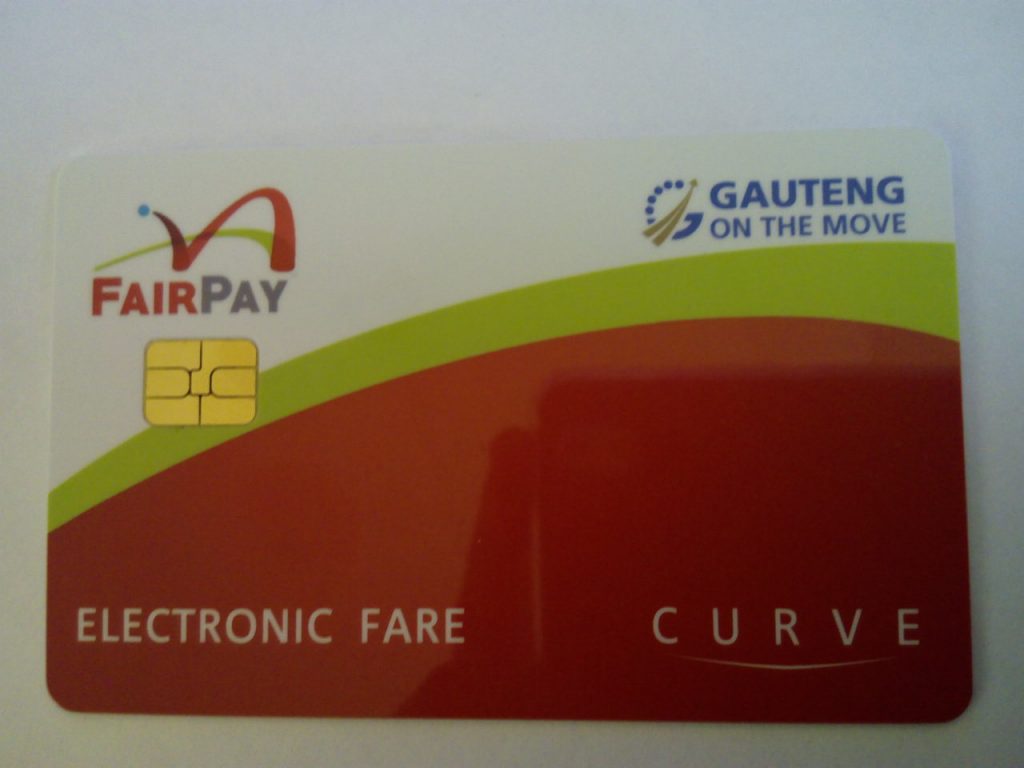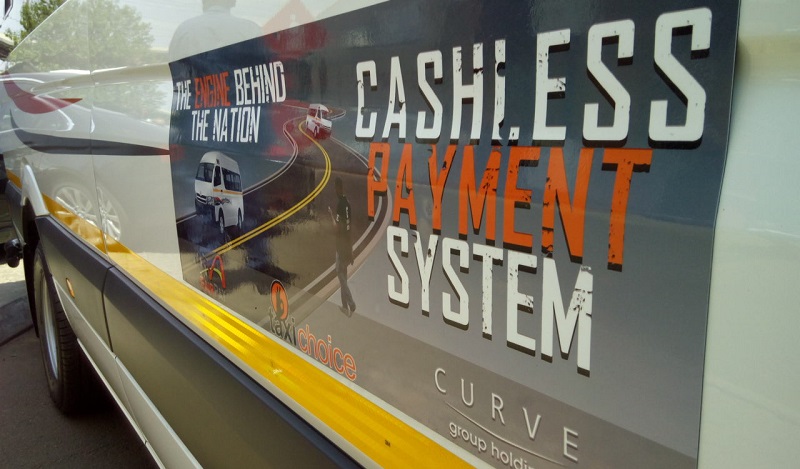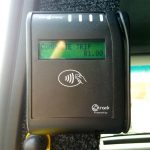As of this month, a number of commuters in Pretoria will be the first in South Africa to pay for a taxi ride using a new cashless payment system.
The Gauteng Department of Roads and Transport today officiated over the launch of the Electronic Fare Collection System at the Bosman Taxi Rank, which will allow commuters to just pay with a simple tap when boarding a taxi.
The system will be piloted on the Johannesburg-Pretoria-Mabopane route by the JPM Taxi Association, which was involved in previous systems which were unfortunately unsuccessful.
The system is owned and implemented by FairPay, owned by parent company, TaxiChoice – the commercial arm of the South African National Taxi Council (Santaco) – and the Curve Group Holdings is the primary technology partner behind the system’s back and front end.
Gauteng Transport MEC, Ismail Vadi, said the system is part of the province’s “one province, one ticket” vision, which aims to have one contactless payment systems for all modes of public transport in Gauteng.
The introduction of the FairPay system coincides with the provincial government’s October Transport Month campaign under the theme “Modernisation of Public Transport in Gauteng”.
How it works
The FairPay system works similar to the ones used by the Gautrain and Rea Vaya bus systems.
Users will be able to purchase fares at point of sale (POS) devices which will be operated by taxi rank marshals, as well as kiosks at taxi ranks and eventually, in selected retail stores.
Fares are loaded onto a FairPay card, which uses the same technology as chip bank cards and are fully compliant with all cashless payment regulations in the country.

Alternatively, one can purchase fare represented on a QR code, which is scanned when entering a taxi.
Upon entry into a taxi, drivers have a front end system near their steering wheel which they use to enter the trip fare. Every commuter who enter, scans their card or QR code onto an scanner installed in the taxi and the amount is deducted from the card or QR code.
The scanner also shows how much is left on the card.
“The technology also enables the easy provisioning of new services, such as incentivising the adoption of the card through reduced fares for pensioners and persons with disabilities in the future,” the department said.
Watch a short demonstration of how it works at the bottom of this article.
Better safety and more convenience for Gauteng commuters
According to Jothan Msibi, Chairman of TaxiChoice, the FairPay system offers a safer and more convenient way for commuters to travel as they don’t have to carry cash on them and drivers also do not handle any cash and are not tempted to drive recklessly to make as much cash as possible a day.
Seeing as it uses the same technology as bank cards, the system also has a mechanism to protect it from potential fraudulent activities.
Benefits for all stakeholders
Apart from just being a cashless payment service, the FairPay system also works as a debit card, which commuters can use to purchase airtime, electricity and other essentials.
According to Msibi this will also assist in bringing the unbanked population in the country into the banking system.
Each FairPay cardholder also gets accidental death cover of R25 000, permanent disability cover of R50 000 and hospital cover of R200 per day. All these services are automatically activated 48 hours after first use.
“No other transport system looks after its commuters like this,” Msibi said.
Taxi drivers, who have for decades received their salaries as cash-in-hand since the dawn of the taxi industry in the country, will now be paid as ordinary formal employees and will be afforded the opportunity to access credit and other services available to those with proof of income.
The system will also create a number of jobs within the ecosystem, for example card and fare vendors.
Each taxi with a FairPay system is also WiFi-enabled and will soon also have a screen monitor that will display programming ranging from entertainment, education and advertising, as soon as the Transport department and Curve Group Holdings has fully registered the features with Icasa and the Department of Communications.
Taxi operators stand to benefit from automated bookkeeping and improved business compliance, as well as more revenue from taxi operations, as demonstrated in previous pilot attempts, according to Santaco.
Data is the new gold
Each scanner installed in taxis also contains a GPS device, which gathers info and will go a long way toward improving driver behaviour and safety in the taxi industry, as records of incidents such as speeding, harsh acceleration and braking will be kept, while UIF and Skills Levies contributions will further unlock millions in SETA and other funding for industry training.
The data will give taxi operators a more accurate understanding of the volumes of people making use of specific routes, allowing for better fleet management and route planning.
The same data will also be accessed by be government, enabling it to make data-driven decisions when it comes to ensuring that under-serviced areas get the required level of transportation services that they require.
Curve Group Holdings CEO, Fred Baumhardt, expressed the company’s excitement at partnering with government and the taxi industry to launch the project, adding that the aim of it was to become the best cashless public transport payment system in the world, beating similar systems in the US and Europe.
“We’re the bringing modern transport system to the developing world. This is more than just a tap-and-go solution. It’s leveraging the taxi industry to create further opportunities for South Africans to become more in touch with the digital world around them,” Baumhardt said.
The FairPay system will be piloted until February 2017 and will be rolled out nationally in five years time.



